|
How can small towns in China open over
300 coffee shops?! What is the magic of
the hot searched "village coffee"? |
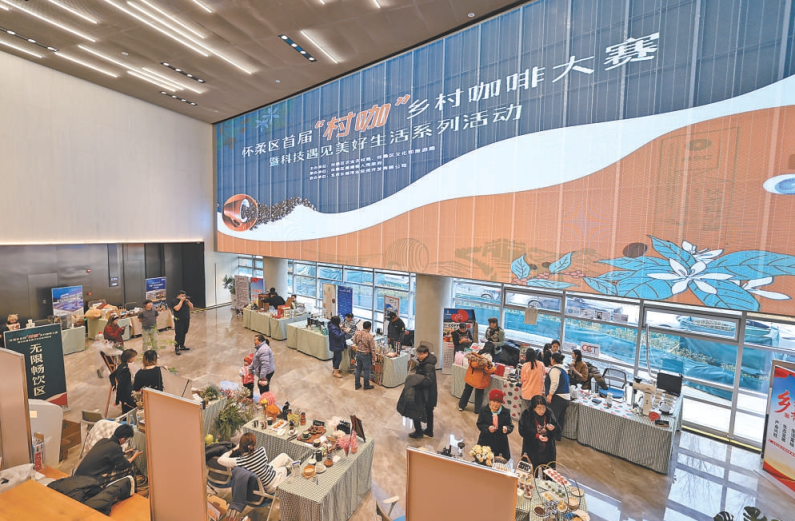
"Village
Supermarket" and "Village BA" have just passed,
and "Village Cafe" has arrived again. In
Zhejiang, many rural coffee shops are called
village cafes. In simple old courtyards, a latte
is served in peony porcelain cups, creating a
serene atmosphere that is particularly relaxing.
Some "digital wanderers" have also moved their
offices to the village, living a "paradise like"
life.
What does
"village coffee" represent? Can it become a new
potential and opportunity for rural cultural
tourism? What kind of dilemma are we facing
here?
With the
saturation of urban development, rural areas are
the main battlefield for accommodating new
business formats. "Village coffee" embodies the
beautiful concept of the younger generation
actively exploring rural values, and is also a
spark of rural revitalization and industrial
prosperity. In the future, "village experts"
will play a significant role in improving the
overall cultural environment of rural areas and
attracting returning entrepreneurial talents.
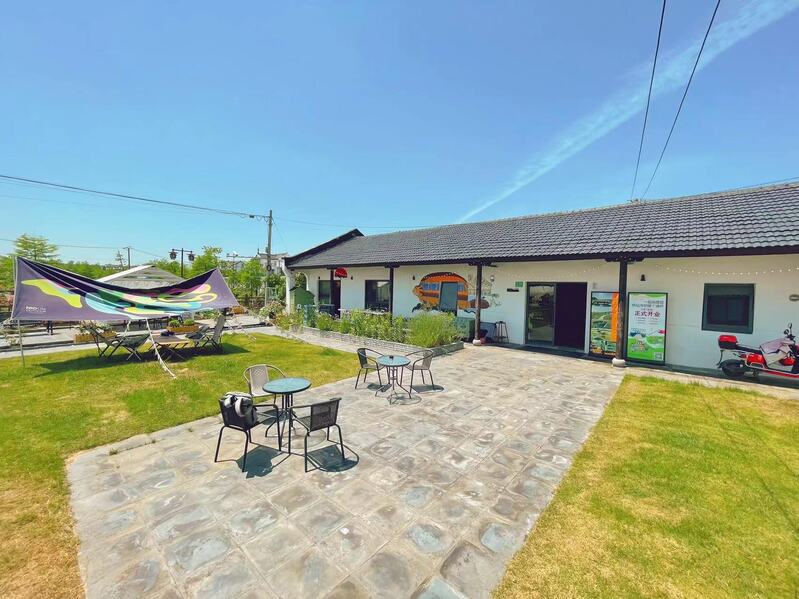
A cup of
coffee revives "outdated" historical sites
Desolate old
courtyards, abandoned factories, and neglected
cultural museums... In rural areas, such scenes
are everywhere. How can they be revived?
Coffee seems to be exclusive to cities, but what
does it feel like to drink coffee in the
countryside? It also makes people feel a bit
excited. In Anji County, multiple abandoned
mines have been transformed into uniquely
designed coffee shops, and observation platforms
have been built using uneven terrain. The blue
lake water and towering green mountains have
become the background for drinking coffee,
attracting countless young people to come and
check in.
The Red Temple Village has become a popular spot
on the internet, known as the "Deep Blue Plan X"
mining caf é. Located between the water of the
Zhanlan Lake and the cold rocks, the
entrepreneurial team has transformed the
abandoned mine into a "small Iceland" to meet
the check-in needs of new urban youth. They have
specially built a window suitable for taking
photos, and even hired a professional
photographer to help consumers take photos in
the caf é, Within a year, it has received a
total of 350000 tourists, with a maximum daily
reception of nearly 8000, bringing more than 6
million yuan in revenue to the village.
To put it
simply, people are not attracted by the
ubiquitous coffee in the city. The uniqueness of
"village coffee" lies in the different styles of
scenes conveyed in the countryside, providing a
unique and flavorful experience for the busy
population in the city. At the same time, for
rural areas, it is an opportunity that is almost
like burning a boat.
Anji County has a mild and humid natural
climate, with beautiful tea and bamboo
landscapes. However, before 2005, unscientific
mining caused damage to local resources and
environment. Subsequently, Anji County
established the strategic goal of "ecological
county" and carried out reclamation and greening
of local mines, with plans to further transform
them into "mining gardens". However, simply
turning it into a "garden" cannot achieve
economic value. Several resource scarce small
mountain villages such as Hongmiao Village and
Xinyu Village in Anji County are considering how
to introduce new business models and activate
these "dormant" mines.
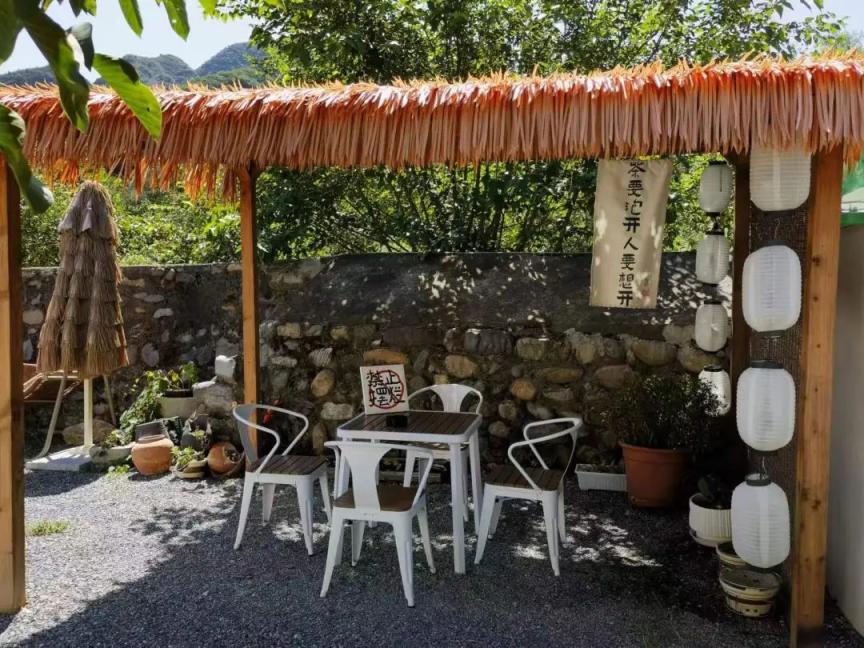
At this time, several young entrepreneurs had
already set their sights on this "big business".
They traveled mountains and rivers, spent a lot
of time exploring the terrain of the mine, and
proposed to develop coffee shops with
photography as their core consumption point. At
first, the villagers were extremely opposed,
believing that opening a coffee shop in such a
mountain ditch would definitely lead to
bankruptcy. "It's too easy for city people to
drink coffee, why come here?"
The answer is still "internet celebrity". Anji
County is located at the geometric center of the
Yangtze River Delta Economic Circle and an
important northwest node of the Hangzhou Urban
Economic Circle. With the full opening of
highways and high-speed railways, it is possible
to shuttle freely between urban and rural areas.
Low cost weekend trips have brought tremendous
impetus to the development of rural coffee shops
in Anji County. Data shows that during this
year's May Day holiday, more than 50 rural
camping sites in Anji received a total of 25000
tourists, driving consumption to 200 million
yuan.
After the
outbreak of people rushing to check in just
after the end of the epidemic, the "village
cafes" have returned to calmness. The wheat
field cafes in Xinyu Village have formed stable
flow data and can reach a turnover of 10000 yuan
on weekends. The "Deep Blue Plan X" caf é has
become a model for interviews and learning in
Shili Ba Village, continuously attracting
tourists and inspection teams from all over to
visit Anji.
Is a cup of coffee worth 50 yuan? Perhaps for
the residents of these cities, what they buy is
not the coffee itself. Sitting alone in the
fresh and quiet mountains and forests, gazing at
the distant mountains and clear water, this mood
is worth it.
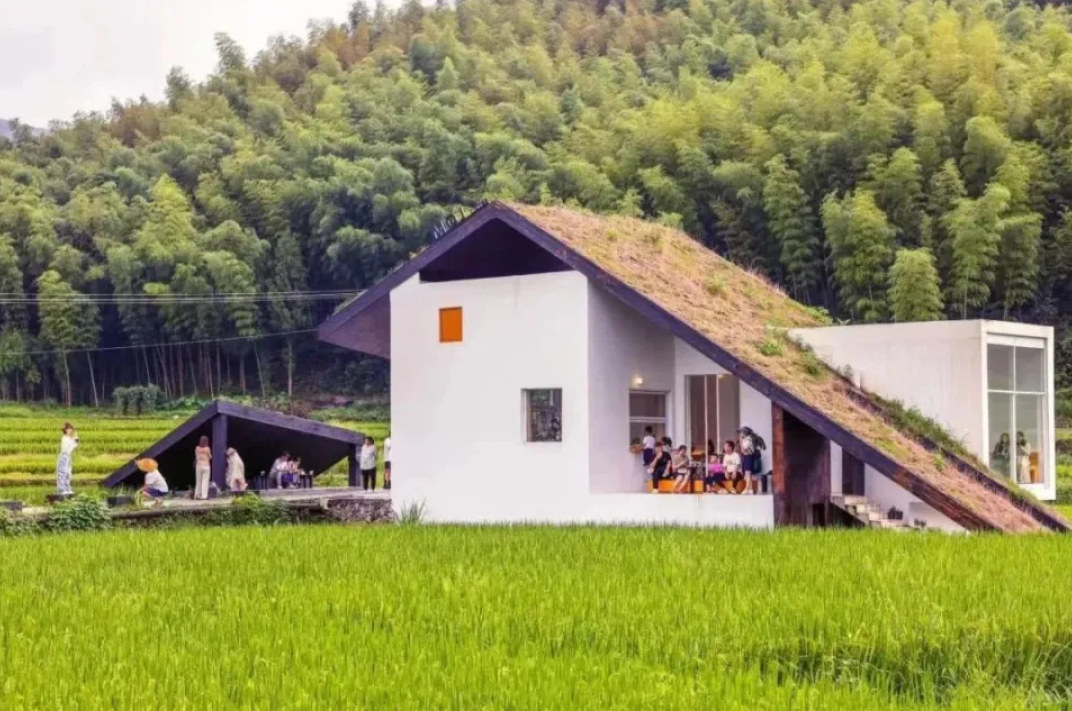
"Coffee+"
promotes the re integration of urban and rural
cultural backgrounds
In addition
to coffee, "village coffee" has also driven
other products and industries in the village.
Many "village experts" choose to cooperate with
rural areas and establish interest links with
village collectives and villagers through joint
ventures, expanding the sales of agricultural
products and benefiting villagers. In Yongwang
Village, Ningbo City, coffee shops have brought
foot traffic and increased popularity to the
village, as well as opened up sales channels for
the villagers' handicrafts and local
specialties. The collective annual economic
income of the village exceeds 3 million yuan.
Faced with the issue of how to sustain traffic,
entrepreneurs are well aware that "village
cafes" have never been doing business for the
villagers, but rather creating formats that
urban people like.
Therefore, some "village cafes" continue to
expand the project planning of "coffee+", and
have held public service art training, Paper
Cuttings intangible cultural heritage
exhibition, home stay, camping, concerts,
reading parties and other activities to fully
add rural cultural elements.
Wenzhou Zeya held its first coffee festival,
attracting 40000 visitors in three days; More
than 100 music festivals and salons have been
held with Dalu Academy as the starting point,
activating the rural night economy. The
collective income increase in the village has
also rapidly nourished the living conditions in
the village, with increasingly diverse
industries, continuous circulation of factors,
and improved public services.
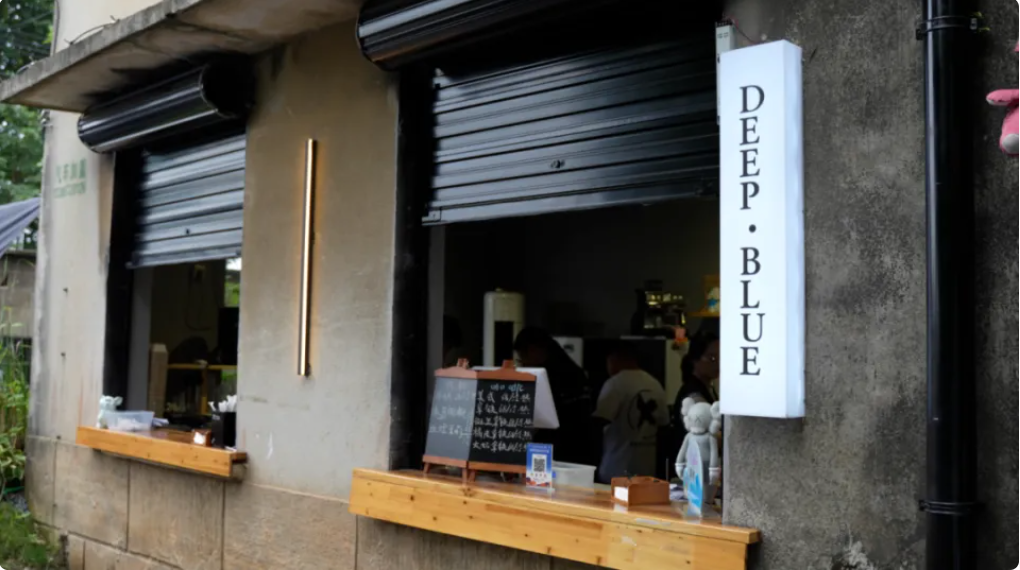
Looking out from the window of the village cafe,
the environment is no less favorable than that
of the town. Buses, charging stations, and
health services are as fully functional as
cities, allowing one to enjoy modern civilized
life while also encountering poetry and distant
places around the corner. Who wouldn't love such
a rural area? Why worry about not having
traffic?
At the same
time, in the face of emerging industries such as
"village cafes", policies are also keeping up
with the pace, providing more personalized
support for entrepreneurship in different
industries, regions, and types. Just like Yucun,
which has given birth to many internet famous
"village experts", it has also launched the
"Global Partner" plan, established a 100 million
yuan "Yucun Industry Fund", actively recruited
talents, constructed business models, advocated
more young people to return to their hometowns
for entrepreneurship, and created more
"hematopoietic" new cells. Building a new
internet celebrity brand in the cultural and
tourism industry - "Small City Big Coffee,
Coffee belongs to Anji", increasing brand
promotion and support from industry management,
publicity and promotion, policy support, and
other aspects.
But at the same time, we also need to see the
shortcomings faced by "village experts". Among
the 187 villages in Anji County, over 300 coffee
shops have opened, and very few of them can
truly become "internet famous" coffee shops for
profit. "Village coffee" relies on using coffee
as a tool and the village environment as a
product to achieve cultural and human
integration between urban and rural areas
through flow oriented rural projects. However,
many rural areas still lack pillar industries
and supporting facilities, relying solely on
highly homogenized "village coffee". After the
flow, their situation can be imagined.
On the development path of rural revitalization,
cultural resources should be diversified,
industrial structure should be clear, and brand
IP should be differentiated. In many rural
areas, whoever can first precipitate the brand
from the perspective of characteristic
industries and complete the connection of
industries, will continue to develop the
"village coffee" and become a window for the
continuous flow of new industries.
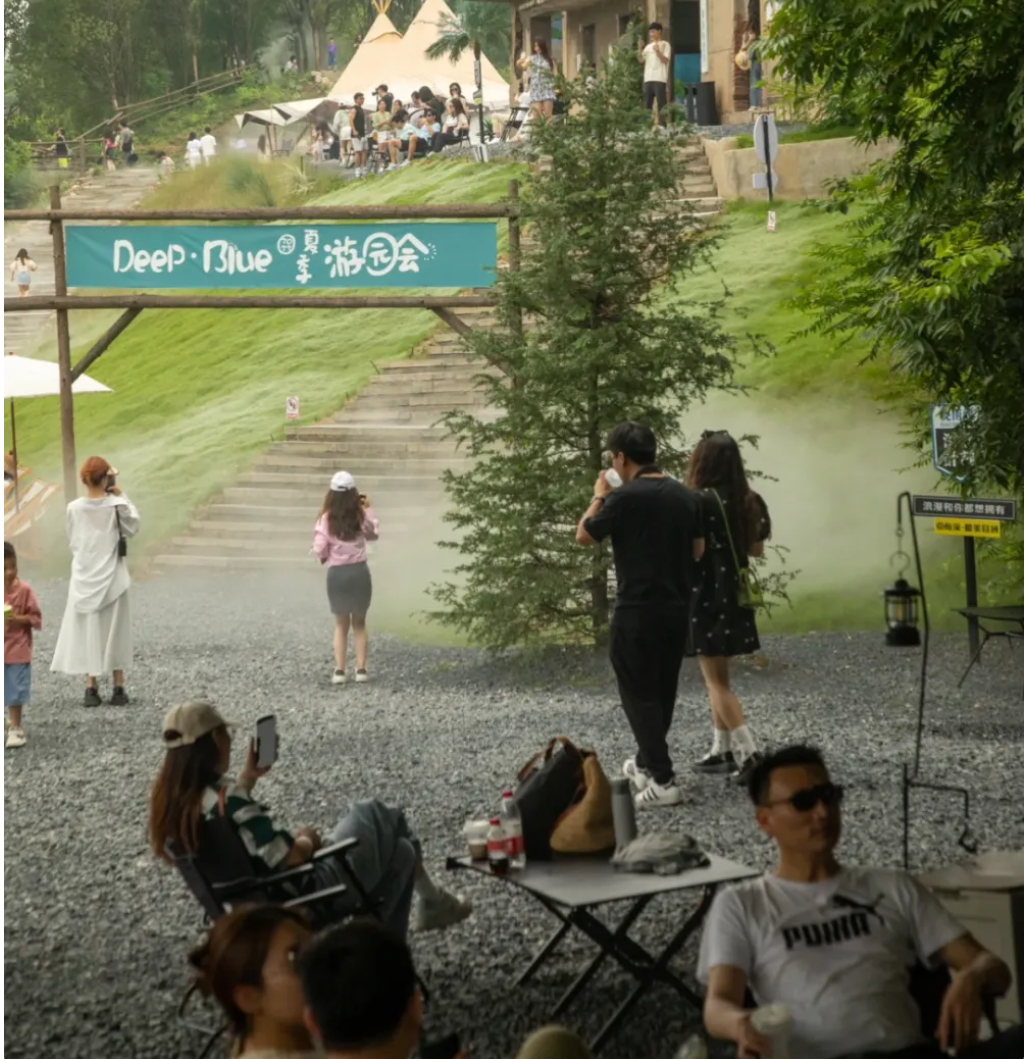
From Rural
Landscape to the Habitat of Digital Nomads
As a
commodity, rural landscape is no longer a new
thing. In the era when rural tourism has entered
the bottleneck of homogenization, "village
coffee" provides a new development idea, using a
cup of coffee to keep people in the countryside.
"Digital nomads" refer to freelancers who can
work without having to work at a fixed time and
place, with just one internet cable. In Hengshan
Village, Anji County, Huzhou City, an abandoned
bamboo and wood processing factory has been
transformed into a "digital nomad commune". The
commune has shared office and dormitory areas in
over 8000 square meters of space, supporting
various functions for work and life. In 2022,
473 "digital nomads" were admitted, with an
average stay time of 47 days and an average age
of 31 years old. 37% of them have a master's
degree or above, and an average daily working
time of 6.8 hours. One coffee shop after another
has become a warm haven for "digital nomads",
and the countryside has become their second
hometown of choice.

In some
places, relying on local advantageous resources,
a new type of tourism comprehensive pilot
project called "Co Prosperity Farm" has been
established, which not only sells coffee but
also develops characteristic industries such as
planting and fishing. "Rural makers" have
transformed into "new farmers", becoming a new
carrier connecting people and space, helping to
grow and create new formats, and driving the
continuous extension of surrounding industries.
The Federation of Trade Unions in Xilong
Township took the initiative to visit "village
experts" and formed the DNA Anji "Digital
Wanderers" Commune Union, and together with
other functional departments in the township,
provided on-site services such as license
processing to attract them to join interest
activity groups. After the establishment of the
Coffee Union in Meixi Town, Deep Blue Coffee
often holds industry exchange meetings to share
service experience with new coffee
practitioners, carry out team building, enhance
industry cohesion, and allow freelancers here to
feel the warmth of home from the guild alliance.
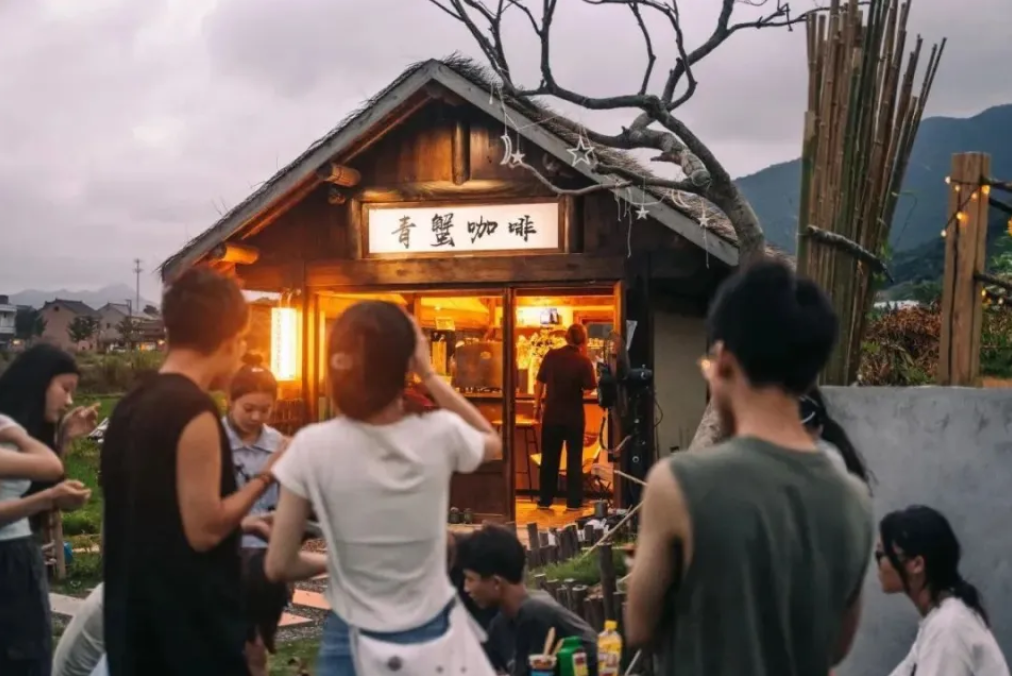
Communes and
alliances centered around "village cafes" have
gradually enabled internet celebrity check-in
areas to have normalized residents, forming
organic exchanges between urban and rural areas.
For young people who stay and work in rural
areas, their pursuits may not be the same, but
everyone is exploring new operating models and
industrial opportunities. No matter how long the
"village coffee" can last, the rural industry
will eventually develop towards a more diverse
and resilient direction.
Young people represented by "digital nomads" are
searching for the life they want, and rural
areas are a pure land that has not been fully
explored. "Village experts" have also subtly
changed traditional work concepts, liberating
more young people with ideas and daring to
innovate from the urban "involution" track, and
driving rural industries into a broader future.

Conclusion
With the
hosting of the Asian Games, rural coffee shops
in Zhejiang have ushered in a new peak of
traffic. The vitality of consumption and
investment is gradually recovering, and the
relevant departments in Anji expect the number
of "village cafes" to gradually increase. The
interaction between this new rural business
model and existing business models such as
camping bases, resort hotels, and tourism
complexes will become more close.
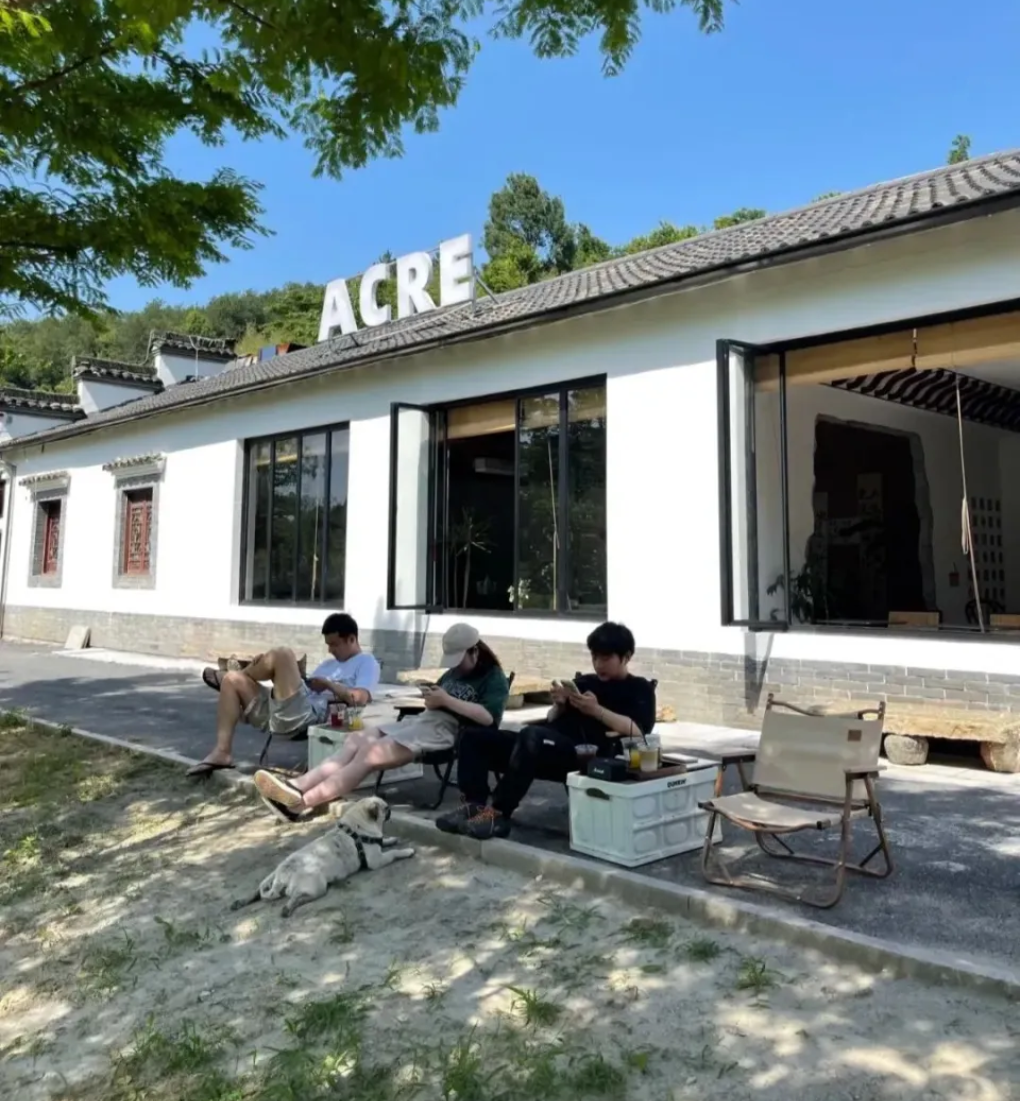
Agriculture needs to be rejuvenated, and rural
areas in the future have much greater
development potential than cities. "Village
coffee" is a new business model for young urban
people to participate in the revitalization of
rural industries. It represents the direction of
the new generation of "digital vagrants" and
naturally promotes urban-rural integration. It
is a two-way rush to activate endogenous energy.
|